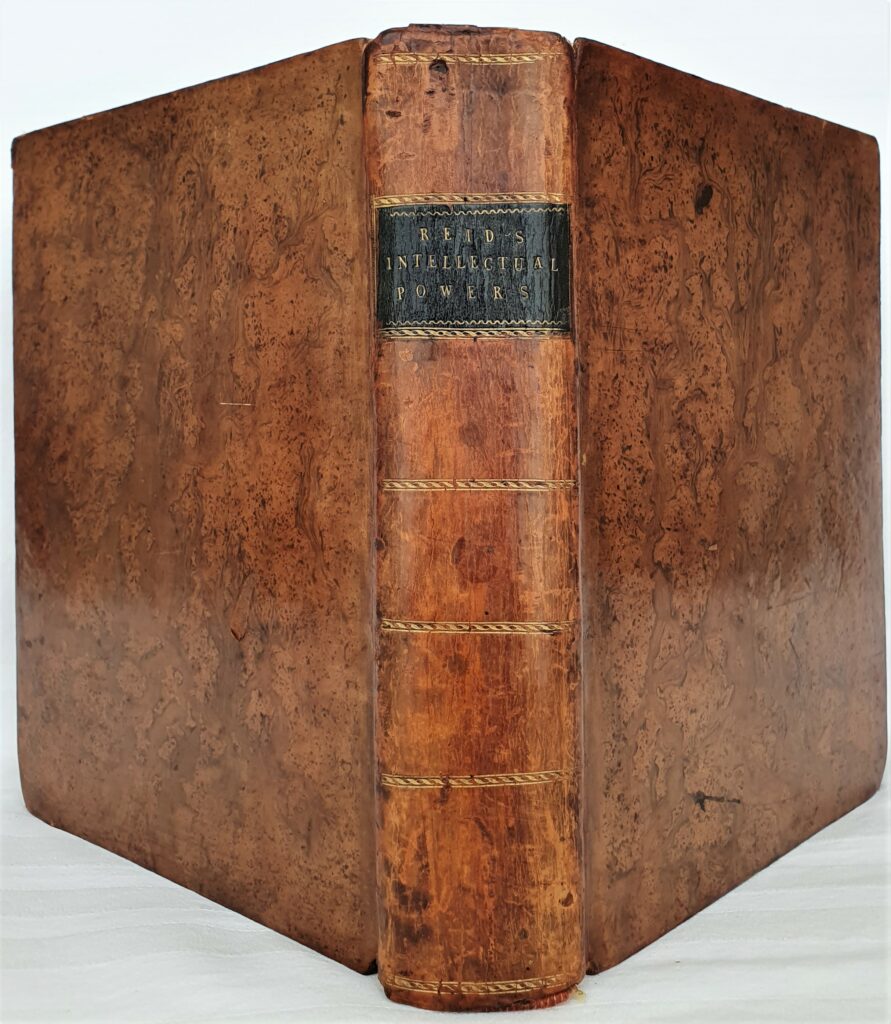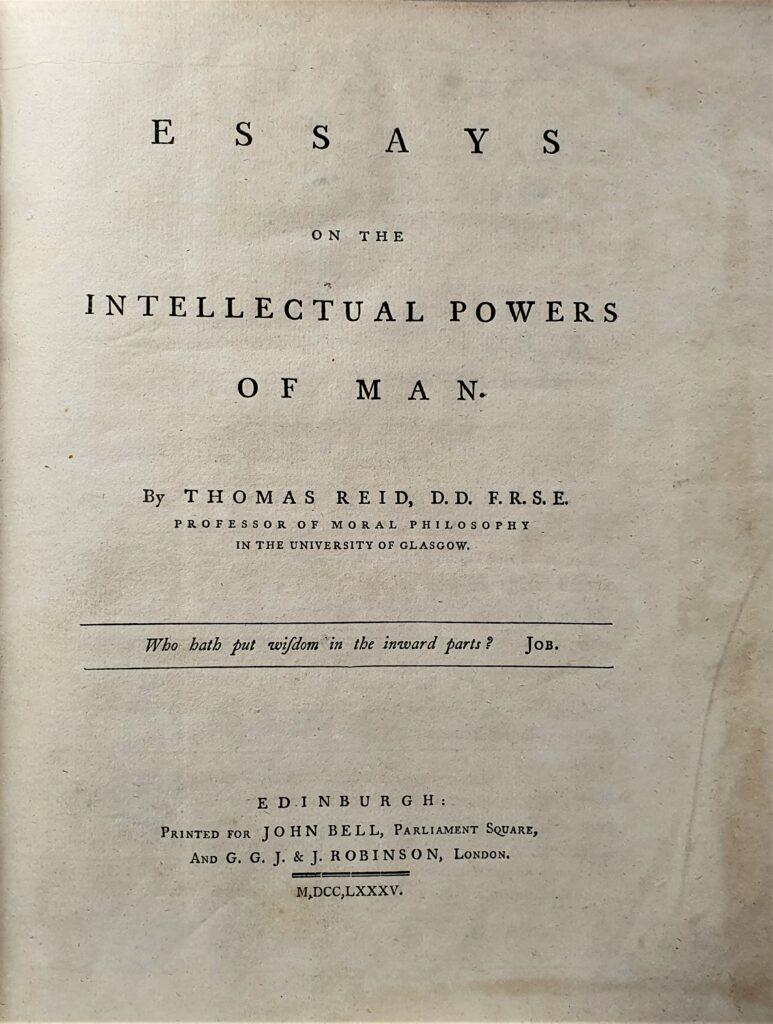

First edition of Thomas Reid’s greatest work in epistemology, and one of the landmarks of the Scottish Enlightenment. It was followed by his Essays on the Active Powers of Man (1788), covering moral philosophy. These two sets of Essays were systematic writings-up by Reid in his retirement of the lecture notes he had developed over long years of teaching at the Universities of Aberdeen and Glasgow. In his earlier Inquiry into the Human Mind on the Principles of Common Sense (1764) Reid had set out his anti-sceptical account of perception in sections dealing with the five senses in turn. In the present work, sense perception is just one of the Intellectual Powers to which he devotes an Essay, the others being memory, conception, abstraction, judgement, reasoning and taste. Reid’s broad aim throughout this body of work is two-fold: negatively, to demolish the claims of “the ideal theory” in all these domains, and positively to establish a “philosophy of common sense” which lacks its sceptical consequences for knowledge and morality.
Reid was David Hume’s exact contemporary, and his earliest and most sophisticated critic. The two fellow-Scots never met, though there is correspondence between them. Reid many times expressed large and unfeigned admiration for Hume – ‘the acutest metaphysician of this or any age’. He regarded it as Hume’s especial merit to have brought out the sceptical conclusions which had lain hidden in the universally received philosophy of ‘ideas’ since Descartes’s time. Included in this book is Reid’s famous ‘brave officer’ objection to Locke’s account of personal identity (pp. 333 ff), which all philosophy students learn about in their undergraduate studies.
